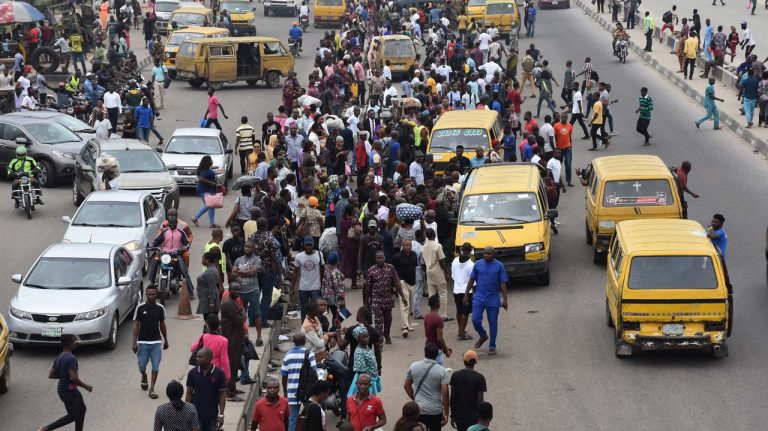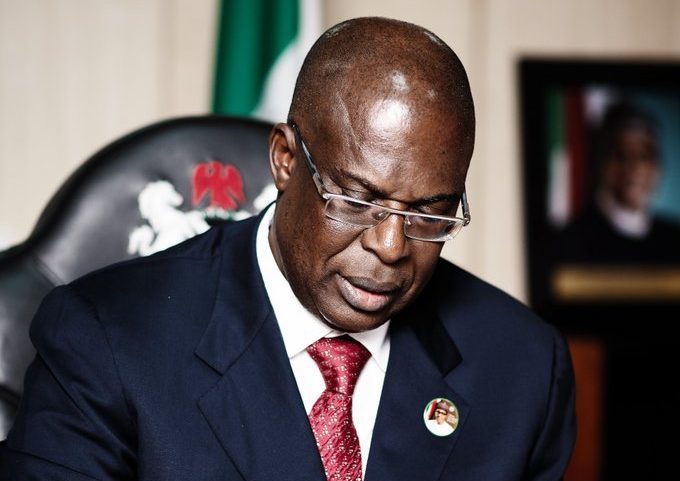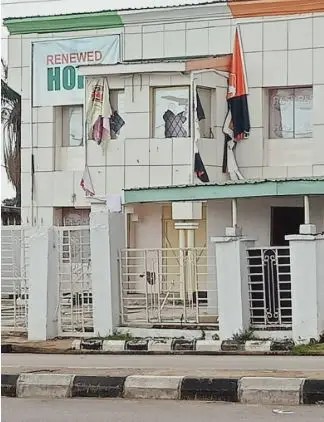A late Sunday declaration of a state of emergency on various dilapidated highways and carriages in Lagos did little to abate the traffic snarl that again brought the state to its knees on the first working day of a new week.
The incessant downpour last week that lasted into Saturday evening not only exposed the underbelly of Lagos city and inner-city roads of flood and blocked drains, it left behind huge craters dotting the city of excellence’s landscape, leading to the viral joke that: “In Lagos, you don’t avoid potholes, you choose the ones to enter.”
The state has always been known for its traffic congestion, but lately, it has grown worse due to the recent failing condition of the road infrastructures. With the reoccurring rainfalls, the entire city is in despair. The daily commute is now hell on earth. It doesn’t matter where you live in Lagos, the traffic is inescapable. A journey that should normally take 20 minutes, which used to take an hour has now worsened with commuters spending more hours on the road.
Yesterday, it was another round of traffic congestion, bad roads and all the stress that comes with living in Nigeria’s commercial capital. A drive through Ikotun, Egbeda, Jakande Gate, Isolo to Aswani market left a bad tale for many commuters both in the morning and during their return trip at night.
The Guardian also observed that from ION inward Abule-oshun, en route Old Ojo Road, movement was stalled due to extremely bad and indiscriminate parking by tankers and containerized trucks. Lagos Badagary road is not left out in the deplorable state of the roads. Many portions of the road in the axis have potholes that stalled movement. A container-laden truck that fell at Durba junction compounded the woes of road users in that axis
Also, all movements from Oworonshoki to Berger, Gbagada to Oshodi, Oshodi to Ikeja Along/Iyana Ipaja, Oshodi to Cele Express/Mile 2, Ikorodu road were a trail of red lights, signaling vehicles on standstill.
This stalemate left many road users stranded, many struggled to hop on any available motorbikes, popularly known as Okada, some looked on dejectedly in a snail-moving traffic while others disembarked from buses after paying the fare to trek long distance. To the last group, it was a relief, any forward movement whether on foot or on bike was better than enduring being at a spot for hours.
READ ALSO: EU Ministers To Be Updated As Talks Continue On Brexit
As some ponder what the rest of the week would hold for them, others discussed coping mechanisms of living with the demon that the Lagos traffic had been code-named. A social media user suggested that a remote working option has become necessary, as the daily commute is not doing anyone any good.
“I would gladly take a remote work that pays ₦25,000 than a job that would make me go to Lagos Island from the mainland five days a week for ₦50,000, where I endure three hours of traffic in the morning and four hours in the evening, which nearly left me with a mental illness, apart from seriously reducing my productivity at every front,” Sola Akingbade said.
Another remarked: “I used to teach on the island, but on September 20, after spending nine hours in traffic, nobody told me that I was dying. I just took a walk. Before then, I was at an HR conference in April. During one of the sessions on health, one of the panelists said the rate at which people are dying in financial organizations is alarming and called for a yearly report on organizational mortality rate, especially Lagos-based firms. According to him, the cause of most of the deaths was mainly stress.”
Mike Solomon said: “Today, I had to discontinue a journey towards Mile 2 when I saw that the traffic was unending. Whatever you do, please don’t let anyone use Lagos traffic to swear for you.”
Traffic congestion, with its noise and environmental pollution, takes a huge toll on workers’ mental and physical health. Health professionals have even linked their overall damage to the increasing rate of suicide in the city. According to consultant psychiatrist Olufemi Oluwatayo, it is not a surprise that Lagos commuters are negatively impacted by the traffic conditions.
“It is not really hard to see why employees might feel stressed, burned out or exhausted, especially in a city like Lagos,” Oluwatayo says. “They leave home at 4 a.m., enduring hellish traffic and then [have] to deal with work pressure and the prevalent job insecurity, not to add individual family problems and responsibilities. It is no surprise that, in general, many more people seem to be suffering from anxiety and depression.”
“The situation is also killing workforce productivity. How productive can you be when you stay in traffic for over six hours on a daily basis, conjoined with the things you go through to have a normal life in this city?” media exec Agnes Marquis said in a report by Pulse, titled: “Here’s why you should think twice before taking a job in Lagos.”
And there is no respite soon as the state government though has declared a state of emergency on the roads but still needs to wait until the rains are out of sight before any palliatives can be done to arrest the parlous state of the roads.










